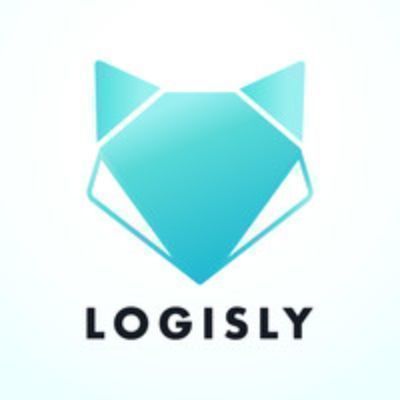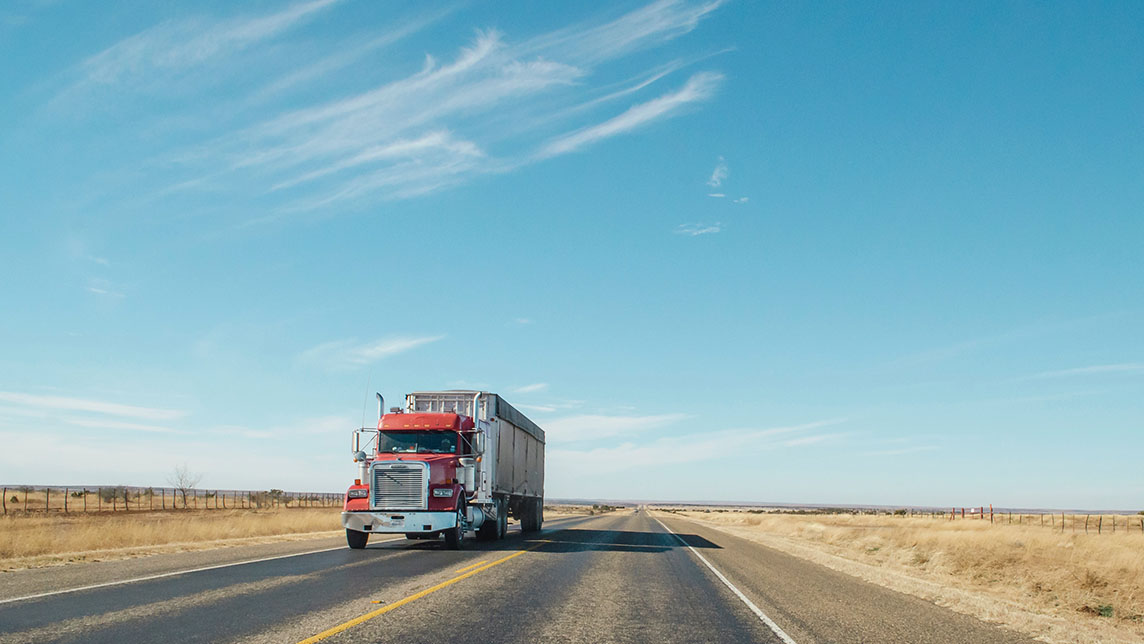Founded by former Kudo chief of staff Roolin Njotosetiadi and IT consultant Robbi Baskoro, Logisly aggregates services from 500 transporter companies to help clients quickly access the right trucking services. The company raised seed funding from SeedPlus, Genesia, and Convergence Ventures in 2019 and is in talks to raise more. It competes against other logistics tech startups such as Waresix and Kargo Technologies, as well as other traditional logistics operators.
CompassList first met Logisly in August 2019, shortly after they raised seed funding. In February 2020, we caught up with Njotosetiadi, Logisly’s CEO and co-founder, to find out about the company's progress so far, the challenges faced in the first year and plans for the year ahead.
This interview has been edited for length and clarity.
Roughly how many client companies have worked with you so far?
We have almost 200 client shippers and close to 500 transporters/logistics companies. We serve everyone from FMCG principals and distributors to raw material manufacturers and other industries. We not only ship raw materials, but also machinery and equipment. Logisly has also started doing a lot of work with projects, and, as before, we continue to facilitate container-based shipping and work with other tech companies who have logistics needs.
What kind of projects are you doing?
For example, infrastructure projects involving one-off shipments instead of routine shipments. The jobs sometimes require specialized types of trucks or transport, and fortunately for us we have a diverse range of trucks available aside from box trucks – the kind that you see on a daily basis. When you're carrying tractors or heavy machinery, you need specialized trucks and Logisly can provide those. We also have refrigerated trucks and we have served shippers transporting chilled or frozen meats. We have a wide range of transporters working with us. Some of these have halal certificates, some have food-grade certification, and others are certified to carry hazardous materials. We continue to expand our transporter base to include those serving various needs.
You advertise through corporate channels, but how do clients normally find Logisly?
Currently, we have not done mass marketing. A lot of our shippers (clients) hear about us from other shippers, through referrals.Those who work with us typically come back to work with us again. A lot of them refer their contacts to us, too. We also reach out to new clients through our networks. However, now that we are in our second year of operations and we've got the basics down, we have plans to build more brand awareness.
Do you have team members outside Jakarta?
Yes. We opened our Surabaya office earlier in January 2020. Surabaya is the second-largest city in Indonesia and there is a lot of industrial activity there. A lot of trucks that transport goods from Jakarta [or Western Indonesia] to the east pass through Surabaya, so we want to be able to increase their backload by opening an office in Surabaya.
Are there any areas that you're not covering right now?
Certainly. There are 17 thousand islands in Indonesia and we're pretty sure there are places where we don't have a presence. Currently, we have facilitated shipments from Jakarta and West Java to Aceh and even all the way to Sorong and Jayapura [in Papua].
What would you say is the biggest challenge in expanding your geographical reach?
Right now, I think our team size allows us to enter more areas. We currently have 60 plus people, but they're not all in acquisition; we have them in engineering, ops, etc. The challenge in acquisition is the capacity of our team. We do see a strong demand from transporters to join Logisly and we have positive feedback from the market, so we hope to operate in a scalable way.
Do you see a greater demand for freight-forwarding services like yours?
Since the start, we've been getting positive feedback so we continue to acquire customers and they are certainly willing to pay for our services. We have a healthy business running right now and it's not running on subsidies. Logisly brings value into the market with the huge number of shippers and transporters on our platform. I would say we have a good trajectory for growth.
Moving on to the features, have there been any new features for Logisly?
Certainly. We've been launching new features almost every week. For example, the shippers can use a separate order flow for ordering container shipping because the requirements are different than using box trucks. Transporters can now use an Android app to quickly onboard new trucks. Previously, we allowed them to use only the web interface to do so. Now it's easier to onboard new drivers and trucks to the platform.
What are your clients, both transporters and shippers, most satisfied by?
On the shipper side, they are satisfied with our availability. It continues to be close to 100%. When they need a truck, they can get it. Even back in December, when there was a peak period in shipping demand, we could find trucks for our clients. In the past, they always had to phone 10 or more vendors. Now they can just contact us and they'll always get a truck. They also like how they can follow the process from end-to-end, tracing the location in real time and going through the invoices and other documents. For the trucking companies, it's always been the same value proposition: more loads and faster payments.
Anything that's high on the list of things to improve on?
There are a lot of things customers want from us. Some clients want to be able to just dump their shipping schedule Excel file on our platform and have us plan the shipping. If you work with 100 shippers you might have to work with 100 different formats, but if this is what shippers think is easy, we will consider how we can do it.
What are some of the major plans that you can share about Logisly's expansion in 2020?
First, we want to continue to increase the number of shippers and transporters from all over Indonesia. Second, we want to ensure ops continue to be good. In B2B, we put great emphasis on fulfilling the SLAs (service level agreements) of our shippers and transporters. We want to continue to be good as we scale. Third, we want to create products that help humans work better, freeing up capacity to do higher-level work. We want to automate more processes, not just for our side, but also for our shippers and transporters.
What are the biggest hurdles Logisly has faced in running the business and pursuing profitability?
We've had a strong trajectory since last year, so we just need to keep doing what we're doing. But again, with scale comes greater complexity in optimization so the greatest hurdle is ensuring our team continues to work in a very agile way as we grow in size.
Are you optimistic that you can be profitable very soon?
I think the business model is designed to be profitable. We monetized from the very first day, so I guess it depends on your definition of profitability. Our unit economics have always been positive. That's how the business was designed, and that's how we will continue to operate. However, we are undergoing very rapid expansion as well. If necessary – and it is necessary for this business model to have a large network – we will continue to expand.
Speaking of expanding, there are a lot of different players at every stage in the country's logistics industry. How do you stand out?
Our value proposition has always been the same. The strength lies in our network and operations. I believe we have the largest number of active transporters compared to similar players. We serve the most number of B2B clients/shippers as well. We distinguish ourselves by building and maintaining our network to meet our value proposition. Transporters will only work with us if there is demand from the shippers, and the shippers will only work with us if we have transporters. Given that we already have a healthy, active base, we hope to capitalize on that to develop our network more rapidly.
This service uses a tech platform but the way you’re expanding is through traditional network-building.
For now, but it won’t stay like this. If you want to scale and serve a large customer base efficiently, you need technology; otherwise, you’d need a village’s worth of people to do it.
Have you faced any other significant challenges? How do you overcome them?
At the end of the day, logistics is a business run in the physical world and there are a lot of moving parts. There are sometimes problems on the road, for example, and other real-world issues. Earlier this year, for example, some of the truck pools were flooded so they couldn't operate. We continue to see these new real-world issues and we develop new SOPs (standard operating procedures). When we were small, we treated some problems as exceptions to the norm, but as we scale the exceptions become quite significant in number. So we develop new SOPs to mitigate these problems. If it's significant enough, we develop new technology products to adapt.
It's very hard to mitigate floods, but how did you continue serving your clients then?
That was when the network came in handy. We have other truck pools still operating. Even December 28-29 last year and up to the 2nd of January, there were a lot of route restrictions for traffic management and some truck companies stopped operating for the holidays. Luckily for us, our network has companies that continue to operate, and they can navigate the routes that are still open. This will be a big challenge during the Lebaran (Eid al-Fitr) period, too
Do you foresee many challenges in transporting during this period?
I think there will be increased demand because consumption patterns increase during this time. Right before Lebaran itself, there will also be a spike because people want to get things done before the whole country basically shuts down for one to two weeks. It will be a good test for our availability. We'll be seeing a flood of demand. We were a much smaller company back in the last Lebaran period. Now, we have more clients but we have more transporters and a stronger ops team this time, too.















